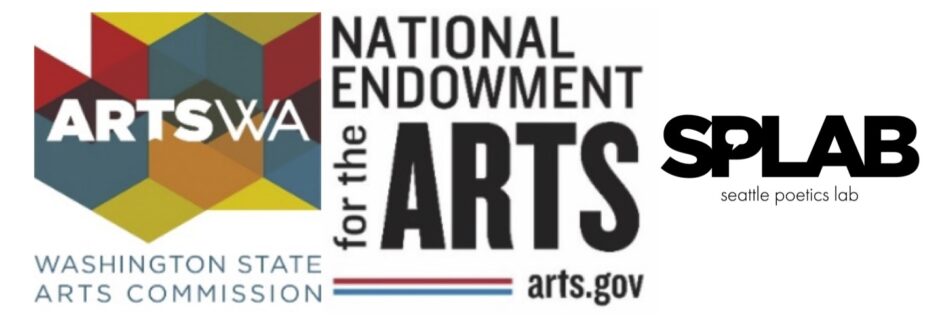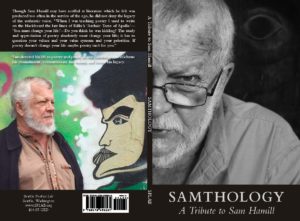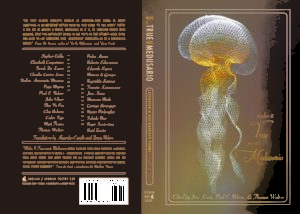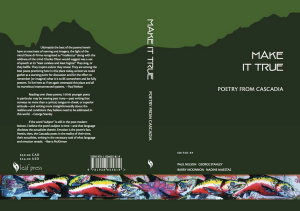This past Fall I had the opportunity to participate in one of the largest poetry experiments in history. The University of Pennsylvania staged a Massive Open Online Course (MOOC) on Modern and Contemporary American Poetry. Capably guided by Al Filries, the course lasted ten weeks and had an innovative slant to things, with poets like William Carlos Williams, Gertrude Stein, Lorine Niedecker, Charles Bernstein, Rae Armantrout, Anne Waldman and other “outside” American poets included. Missing were poets like Charles Olson, Michael McClure, Robert Duncan, Robin Blaser, Nathaniel Mackey, Brenda Hillman and other poets who have inspired me and informed my work. Of those missing, Olson’s absence was the most egregious in my view and spoke volumes about what the instructors feel has been the main thrust of post-war American poetry. In many ways, I think this is a mistake, over-valuing the intellect at the expense of a deeper gesture. I have covered this in some of my essays. The heart has 100 times the energy of the brain and while I value the intelligence of all the poets covered in ModPo, I think one comment on the discussion board was telling. The author said she was interested in “getting back to content.” It reminds me of the joke, described as old when I saw it as Morris Berman told it. “What do you get when you cross a deconstructionst with a mafioso? A deal you can’t understand.”
There were 36,000 students around the world signed up for this course, including Senator Dick Durbin, D-Illinois, and the discussion forums were lively and thought-provoking to say the least. I drove my family to Minneapolis and Chicago and back, so they could meet Ella Roque, the new addition to the family, and was a little preoccupied during the early part of the course. At one point, when the folks running it stated that you can’t over think a poem, I realized the group gathered was not after poetry in canadian cialis pharmacy the same way I was, so lost a little interest there as well. My poetry education has come mostly from poets and not academic types, but I found Al Filries to be a credible and welcoming host, the course itself to be a remarkable experiment in education and an inspiration. I would like to create something similar for Cascadia poetry and am working on that idea.
I have pasted in below a recent email from Al Filries and the University of Pennsylvania and, if you can, please consider supporting their efforts:

Al Filries & his TA’s & the KWH
Dear Paul Nelson,
Hello to you, and all ModPo people.
Every day since around the middle of our course – and often more than once daily – I have received notes in the mail, email messages, tweets, etc., asking me how a ModPo’er can help support what we’re doing at the Kelly Writers House. I’ve responded each time – happily, proudly – with such information in the forums, on Facebook, by email. So let me now put the information for everyone right here in one place.
Yes, the Writers House is always open to all, as many ModPo people have discovered when they visit. Yes, all our programs are free; we never charge a cent for our seminars, workshops, talks, performances, mini-courses, writing groups. Yes, we are – passionately, devotedly – a non-profit center for the literary arts. We can only do what we do with the support of donations from people who admire the project and want to help.
So, not surprisingly, as the year nears its end, and as the holidays approach, I as founder and Faculty Director of the Kelly Writers House am spending my days asking friends of the House to help us. I haven’t yet asked you, my new ModPo pals, but in fact, as I’ve said, many of you have asked me. So I modestly now ask: if you want to help, and feel that you can, even a little, I hope you will click on the link below and support our crazy, heartfelt efforts to spread the good word about interesting writing and talented writers.
http://writing.upenn.edu/wh/support/onlinegift
On that page you will see that you have options. You can support one of several projects.
The Student Recruitment Fund helps us reach out to pre-college students who are geographically dislocated and/or attending underfunded schools – and who are talented writers. We find these talented young people through their teachers and parents and our own contacts with summer writing programs, etc., and we then actually recruit them to come to Penn and become part of the Writers House community. (Several of the ModPo TAs came to Penn, in fact, because of our outreach.) The Student Recruitment Fund is all about providing access, and since that’s been a fundamental part of the ModPo experiment I thought you might like to help with this innovative project.
There’s also the Digital Poetries Fund. We urgently need help with that – the fund that enables PennSound and Jacket2 and PoemTalk and our webcasts. (Those undertakings cost more than you might think.)
Whether you can help a little or a lot – and even if you are unable to help at all – please know from me and your ModPo TAs that we are grateful for all the expressions coming from the ModPo community testifying to the fact that the Writers House as a center for poetry has come to mean something special to you. We created the Writers House in the first place so that people as diverse and as far-flung as you could find a way to enjoy exchanging ideas about writing.
Our doors are always open to you. Please visit!
With best wishes to all,
Al




